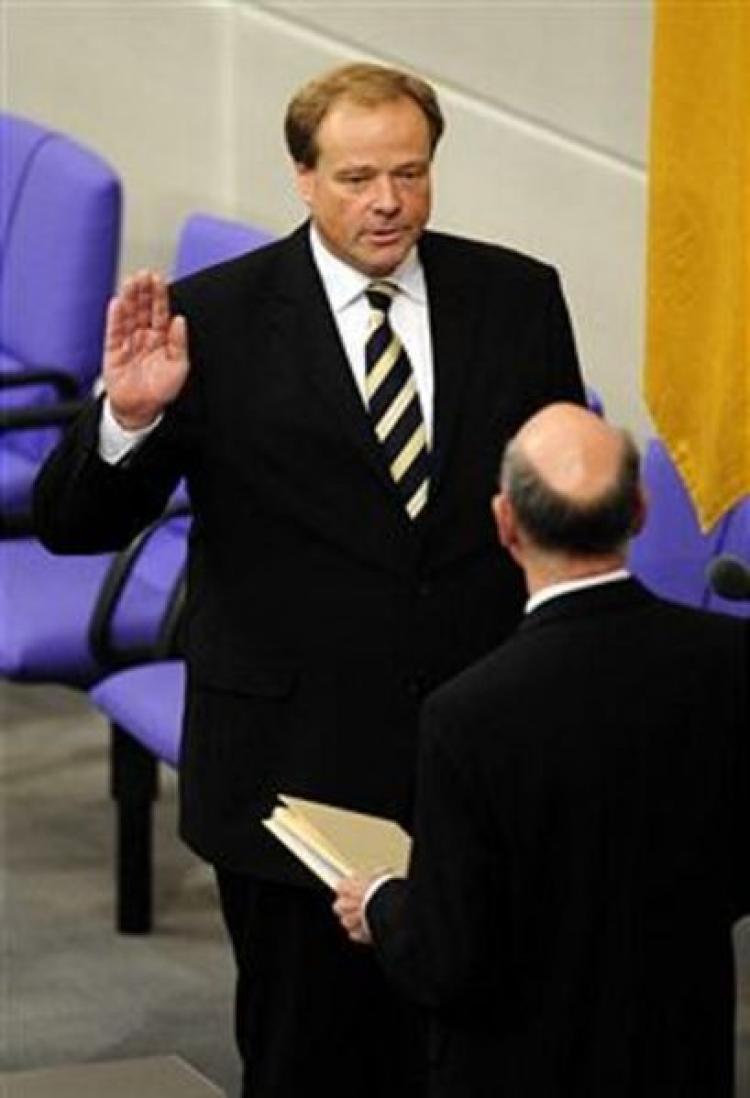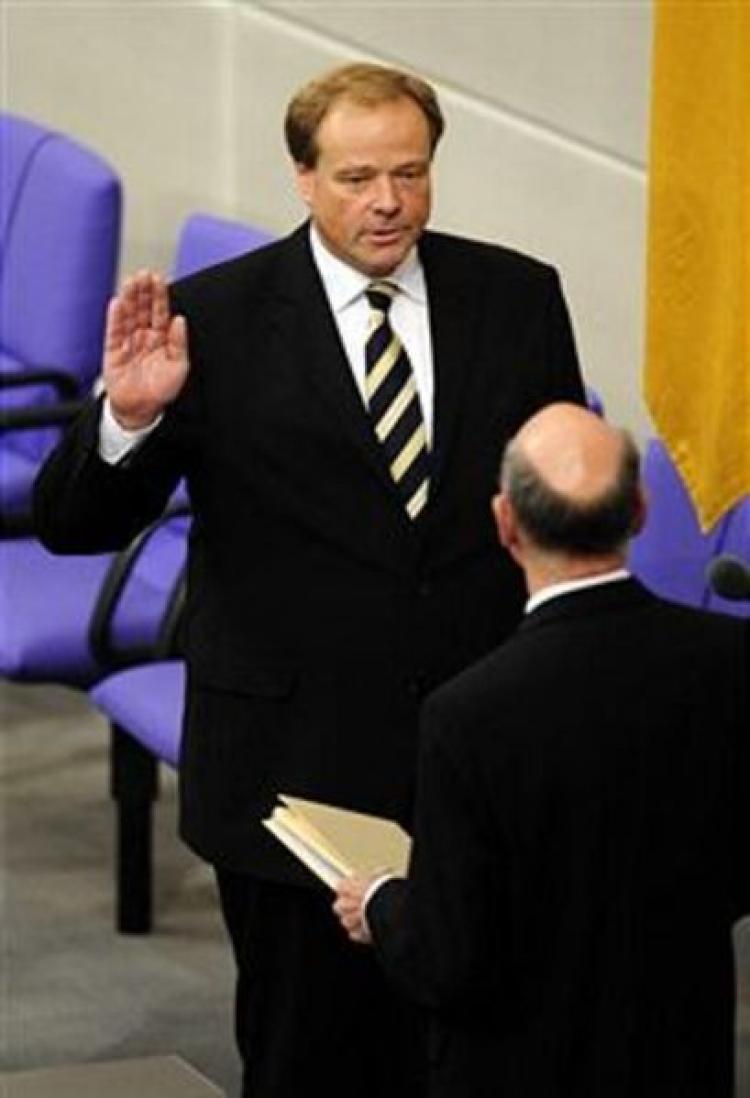When Dirk Niebel, Germany’s newly elected Foreign Aid Development Minister, stated that he would cancel any future development aid for China, instead concentrating resources on areas needing them most, the chorus of disapproval from his fellow democrats was immediate and strong.
“Fighting grinding poverty is more important for Germany now than ever, and the economic giants China and India no longer fit that category,” Niebel said.
The German Green Party renounced Mr. Neibel’s first act in office as “populist, but factually wrong and, in the long run, catastrophic.”
Professional politicians Ute Koczy and Viola von Cram issued a statement, “Cooperation with emerging nations when attempting to solve global dilemmas such as finance, climate, and nutritional issues is absolutely necessary and irreplaceable.”
And Representative Michael Leutert from the Left Wing Faction, not surprisingly, chimed in that providing development aid for China would provide an opportunity to influence reform processes.
These politicians are blithely unaware that the Chinese find such statements extremely humorous.
Wishful thinking or political calculation?
A few of the German democrats still act as if the Peoples’ Republic of China (PRC) is genuinely interested in cooperation and in carrying out the dream of a harmonious worldwide society, or as if the PRC actually had the desire to become a nation governed by the rule of law.
The PRC signed the Universal Declaration of Human Rights but never even pretended to uphold it. It is merely wishful thinking to imagine that China will join the ranks of mutually supportive nations and distance itself from the communist goal of world domination.
Is it that communist China has lulled and deceived us into believing that it will act responsibly, and we have listened out of a desire to feel important and secure? Or, is this a blindly endorsed, politically calculated goal held by certain politicians who, for the scanty handout of a few cake crumbs from the communist regime, go along with whatever the CCP minions ask of them?
Meanwhile, a ministry spokesperson declared that financial cooperation with China related to the financing of development issues has already been halted for this year.
Cooperation along technological lines will also come to a close, specifically an ongoing project of several years for which the Germans had set aside an annual budget of 27.5 million Euros. But dialogue regarding the establishment of China as a nation based on the Rule of Law is to continue.
The ministries still cling to a vastly outdated dictum relating to these issues, but achieving these goals is beginning to sound more like a vague hope.
China embracing the Rule of Law?
People are waiting eagerly to see how the Chinese state press will react, especially since the CCP has so far considered financial aid from Germany a sign of the presumptuousness of the Germans. Initial reactions in China seem to show understanding, and certain people in the PRC have noted that the German minister is interested in fighting poverty.
Another problem in China is that of rampant corruption among officials. Money that had been earmarked to fight pollution has been embezzled, reminding one of a statement by economist He Qinglian in 2007, “Water flows endlessly into the sand.”
The PRC advances money to developing nations, but only those from whom they can expect respect and support along all lines—for example, from countries where China can reap tremendous economic benefits. Thus, China-originated financial aid leads to exploitation of a nation’s resources, and the money will be used to bolster the Chinese space program, enlarge military weapons capabilities, employ more soldiers, or make the development of modern weapons easier.
While engaging in such practices, China keeps its citizenry in the dark about intra-nation conflicts by deliberately publishing disinformation through the state mouthpieces—the only sources of information available to China’s masses.
As we in the West know for certain, the CCP has blocked the Internet for its citizens for years. Radio and TV are state-owned, state-operated, and censored. Specialized independant media outlets like New Tang Dynasty TV and Sound of Hope Radio experience increasing interference.
These independent media outlets are capable of transmitting via satellite to even the tiniest villages. A satellite dish is all that is required to get independent news. But receiving independent news is considered grounds for legal action, and those who turn in their fellow citizens are rewarded.
Hopefully, this newly announced end to financial cooperation will not result in a sudden wave of communication problems for the new foreign minister. We urge him not to become a comfortable bedfellow with the CCP, that unethical regime, which we suspect is behind the Iranian atomic programs.
Increased Warnings
Three years ago member of parliament, Steffen Kampeter stated, “It is entirely possible that, on the one hand, China supports a huge army, sends developmental aid to African nations, and through generous financial contributions, amasses vast technological information. On the other hand, we continue to send German aid [to China] to the tune of more than 50 million Euros per year as if it were nothing.”
Foreign issues parliamentary spokesperson Eckart von Klaeden added, “Fighting poverty in China must not be completely dependent on and come from German tax funds; countries [like China] that have huge surpluses must pay for their own poverty programs; and those who have money to develop a space program must have sufficient funds to fight poverty.”
An aside:
In the course of an Epoch Times interview with economics expert Ms. He Qinglian regarding how China used development money, Ms. He stated, “It is completely unclear how this money was actually used.”
Read original German article





